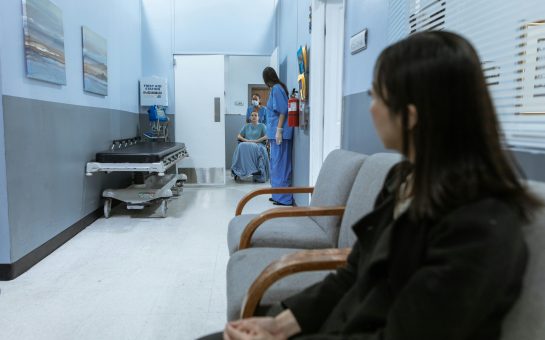By Anaka Nair
August 10 2020, 13.00
Follow @SW_Londoner
New research warns of a ‘second wave’ of job losses for over-50s, with experts calling for urgent government action to ensure older workers are not left behind.
A report from the Centre for Ageing Better and Learning and Work Institute found the number of older workers on unemployment related benefits nearly doubled in the pandemic.
Numbers rose from 304,000 in March to 588,000 in June.
Research warns of a potential surge in long-term unemployment among the over-50s as the furlough scheme comes to an end in October.
Learning and Work Institute chief executive Stephen Evans said: “Over-50s face significant and distinctive challenges from this pandemic.
“While there has been much attention on the risks of youth unemployment as a result of this crisis, the lack of focus on older workers risks becoming a simmering crisis.
“Older workers who lose their jobs are less likely to return to work, and previous employment programmes worked less well for this group.”
Research found that older workers who lose their jobs are more likely to slip into long-term worklessness.
“We must ensure that nobody is left behind and that we don’t repeat the mistakes of the past. It is crucial that employment and skills support works for older workers,” added Mr Evans.
A total of 2.5 million older workers have been furloughed and may be unable to return to their previous jobs as some sectors struggle to recover.
Office of National Statistics data showed that people aged 50–54 years were three times more likely to be temporarily away from paid work as a result of the crisis.
The Office for Budget Responsibility showed that one in ten men and one in six women aged between 50–59 and 60–64 worked in sectors shutdown during the pandemic.
Following the last recession, the long-term employment rate doubled by 2010 among workers aged 50 and over.
The pandemic triggered a labour market crisis and risks reversing the increase in employment rate among over-50s seen in recent years.
Research suggested that rather than becoming unemployed, workers could also become inactive, out of work and not actively seeking employment.
Over-50s who are unemployed are twice as likely to have been out of work for more than a year than those aged 18–24.
A further 35% of over-50s who lose their job are likely to return to work quickly, compared to 63% of workers aged 25–34.
Over-50s have been poorly served by employment support programmes in the past and many older workers interviewed in the research had mixed feelings.
Two out of five older workers say that they are concerned that their finances will get worse as a result of the pandemic.
Some initially embraced being furloughed, appreciated spending time at home and felt they had a secure job. These participants were relieved.
Others explained how the crisis had left them pessimistic about their future employment prospects. This had adverse impacts on their mental health.
“When you read that there’s 9 million people that have been furloughed and they’re saying that 1 million people are going to be made redundant. It is going to be very hard and you’re competing with younger people who understand the IT stuff a bit better. So, it’s not easy at my age anyhow.”
Many were also uncertain about their next steps and concerned about employers’ perceptions of older workers.
“I mean, really a few years ago we wouldn’t be working at this age, I would have retired and be getting my pension but obviously I’m not until I’m 66. So, it’s a horrible situation to be in because you’re not young enough to pick up the IT skills and get a job but you’re not old enough to get any money.”
The Work Programme was introduced after the last recession but only 19% of adults in their late 50s found a lasting job compared to 38% of young people aged 18 – 24.
Centre for Ageing Better chief executive Anna Dixon said: “We know that a one-size-fits-all model doesn’t work when it comes to helping over-50s back to work.
“Instead we need to see targeted support, and a strong message from government that these workers are just as entitled to support as younger age groups.
“Without action we could see many in their 50s and 60s falling out of the workforce years before their state pension age and struggling to get by until they are able to draw their pension.”
Centre for Ageing Better and Learning and Work Institute called for back-to-work support and retraining tailored to over-50s, entitlement to funding for an A-Level equivalent qualifications and further research into the financial impact of the crisis on older workers.




